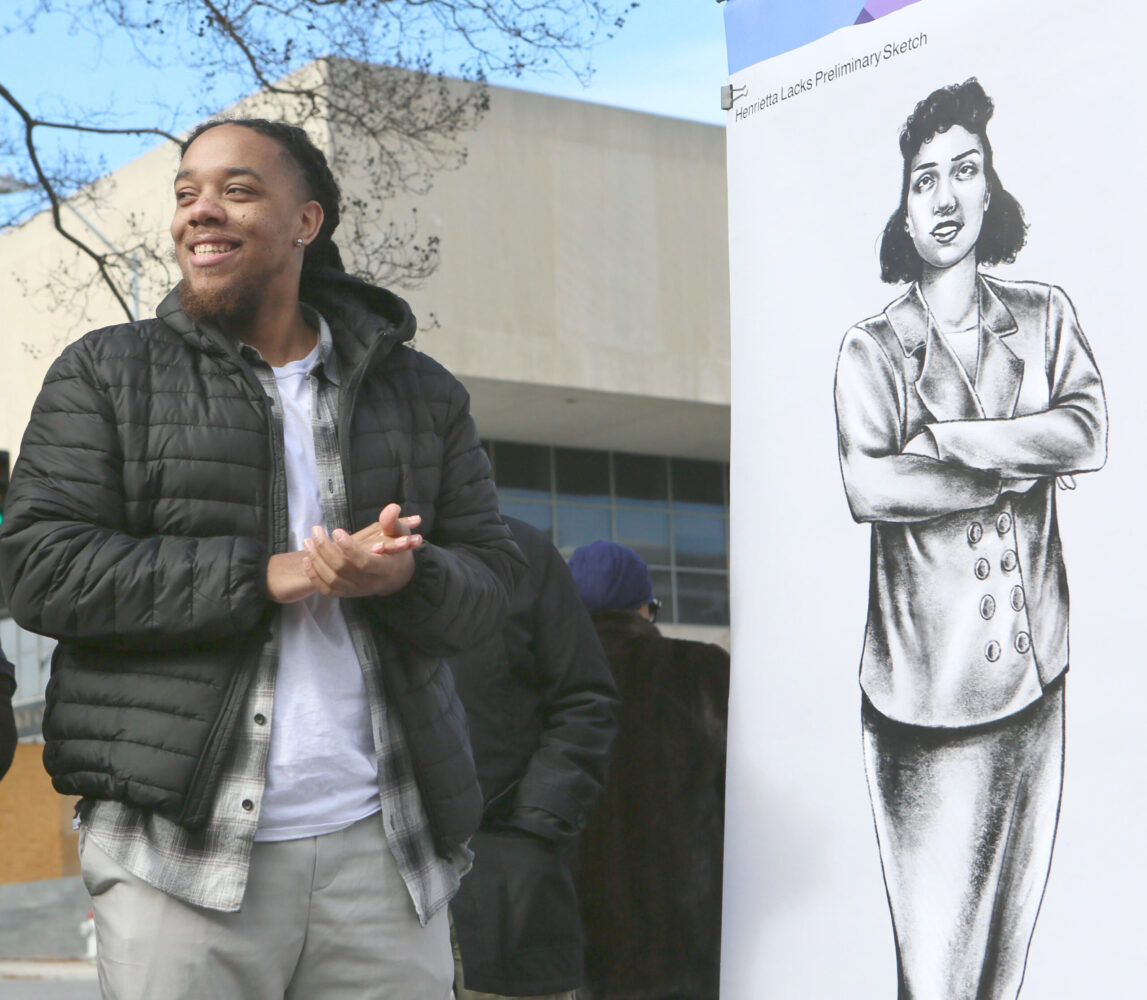Hampton Roads Community News
Statue Will Memorialize Legacy Of Henrietta Lacks

SPECIAL TO THE GUIDE
ROANOKE, VA
The woman whose body cells have been used in vital medical research for decades after her death will soon have a statue erected in her honor.
On December 20, Roanoke city officials, the artist who provided the image for it, and members of her family attended an event announcing the installation of a statue honoring Henrietta Lacks, who was a native of Roanoke, Virginia.
According to city plans, the bronze statue will depict Lacks standing with arms folded in a blazer, long skirt, and heeled shoes. The 100 participants attending the event got a first look at the concept when a drawing was unveiled during the ceremony.
The statue will be installed permanently across from the city municipal building in the Fall of 2023 in a Plaza currently named in her honor.
According to an article by the Roanoke Times, artist Bryce Cobbs had only two photos of Lacks to create the visual image for the statue.
Over $160,000 has been collected during the first phase of the fundraiser to make the Project a reality.
Blacksburg artist Larry Bechtel will begin the creation of the statue by crafting a 24-inch model in oil-based clay, guided by the drawing and recollections of her family, including her only living child, Lawrence Lacks.
“This means a lot to my family,” Ron Lacks, Lawrence’s son, said at the event.
The finished work, a hollow bronze figure weighing about 400 pounds, will stand six feet high — six inches taller than Lacks actually was, Bechtel said. Crews will mount her on a stone base beneath five crepe myrtles trees.
This statue will join the other signs, markers, statues, and exhibits in various places in the United States and the world honoring her.
Lacks lived from 1920 until 1951. She grew up on a tobacco farm in Clover, a part of Halifax County. She was the source of a living cell line used in globally important medical research. Known today as HeLa cells, they constitute the first known immortal line of human cells in history.
However, the doctors involved, who were treating her for cervical cancer at the Johns Hopkins Hospital in Baltimore, Maryland, extracted and studied the tissue without her permission shortly before her death. Members of her family say neither they nor her estate was compensated.
A lawsuit is pending in federal court in Maryland on behalf of Lacks’ estate, arguing that drug companies engaged in “unjust enrichment,” said Ben Crump, the plaintiff’s lawyer, who attended Monday’s event.
“It’s an unprecedented lawsuit because Henrietta Lacks was an unprecedented human being,” Crump said. “Pharmaceutical companies have made billions and billions and billions of dollars. The family hasn’t gotten one red penny.”














